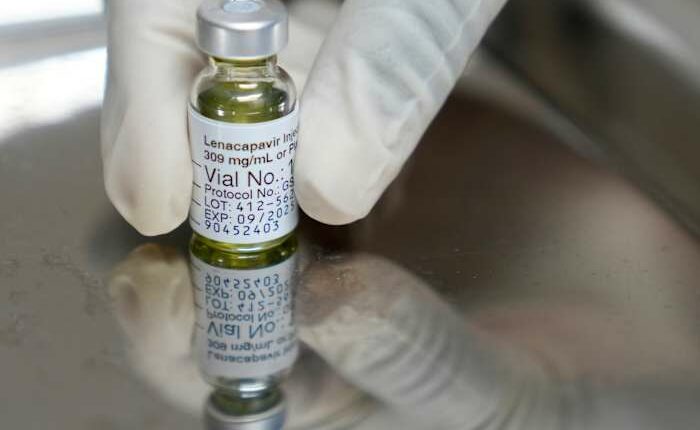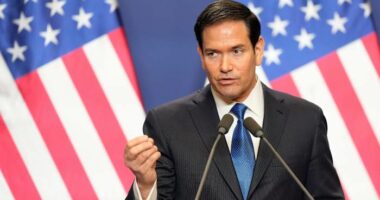Share this @internewscast.com

HARARE – In a landmark development, Eswatini has become the first African nation to receive lenacapavir, an innovative HIV prevention injection that is administered biannually. This breakthrough is being lauded by international health authorities as a potential turning point in the battle against HIV, a virus responsible for millions of deaths across the continent.
Lenacapavir, a product of Gilead Sciences, has shown nearly complete efficacy in clinical trials. The distribution of this drug is part of a strategic initiative under the U.S. President’s Emergency Plan for AIDS Relief (PEPFAR), in collaboration with the Global Fund. The initial phase targets ten high-risk African nations, with the ambitious goal of reaching at least 2 million individuals by 2027.
Daniel O’Day, the chairman and CEO of Gilead Sciences, referred to the rollout in Eswatini as “extraordinary.” He highlighted its significance by noting, “It’s unprecedented for a new HIV medication to be introduced in a sub-Saharan Africa country within the same year as its U.S. approval.” Eswatini holds the highest HIV prevalence rate globally, and the U.S. approved the drug this past June.
The United States, despite significant cuts to foreign aid under President Donald Trump, initially aimed to distribute 250,000 doses to the ten target nations this year. Alongside Eswatini, Zambia has also received its first shipment, while Gilead is pursuing regulatory approvals in Botswana, Kenya, Malawi, Namibia, Rwanda, Tanzania, Uganda, and Zimbabwe.
In response to “early demand signs,” the distribution target has been increased to 325,000 doses, according to Brad Smith, a senior advisor for the Bureau of Global Health Security and Diplomacy.
Data from the U.S. government reveals that more than 25 million people in Africa are currently living with HIV, underscoring the urgent need for effective prevention strategies like lenacapavir.
In Eswatini, a tiny kingdom in southern Africa, about 6,000 high-risk people are set to benefit from the drug’s initial rollout, primarily to prevent HIV transmission from mothers to newborns. Home to roughly 1.2 million people, Eswatini currently has over 200,000 people living with HIV, with most receiving treatment funded by PEPFAR, Smith said.
Eswatini, the world’s last absolute monarchy with a documented record of human rights violations, is also among the African countries participating in Trump’s third-country deportation program, which has faced protests from rights groups.
In July, the World Health Organization approved lenacapavir as an additional HIV prevention option. UNAIDS has called long-acting injectables a “fresh option” amid concerns that foreign funding cuts could worsen infections.
South Africa’s health minister, Aaron Motsoaledi, recently called lenacapavir “groundbreaking” but raised concerns over limited supplies when South Africa begins its own rollout in April 2026.
Motsoaledi also welcomed Gilead’s steep price reduction from over $28,000 per person annually in the U.S. to approximately $40 for lower-income countries.
The rollout has fueled debate over access and manufacturing rights. Civil society groups in South Africa, sub-Saharan Africa’s most advanced economy, have criticized Gilead for excluding local manufacturers from voluntary licensing agreements despite the country’s role in clinical trials.
___
For more on Africa and development: https://apnews.com/hub/africa-pulse
The Associated Press receives financial support for global health and development coverage in Africa from the Gates Foundation. The AP is solely responsible for all content. Find AP’s standards for working with philanthropies, a list of supporters and funded coverage areas at AP.org.
Copyright 2025 The Associated Press. All rights reserved. This material may not be published, broadcast, rewritten or redistributed without permission.










